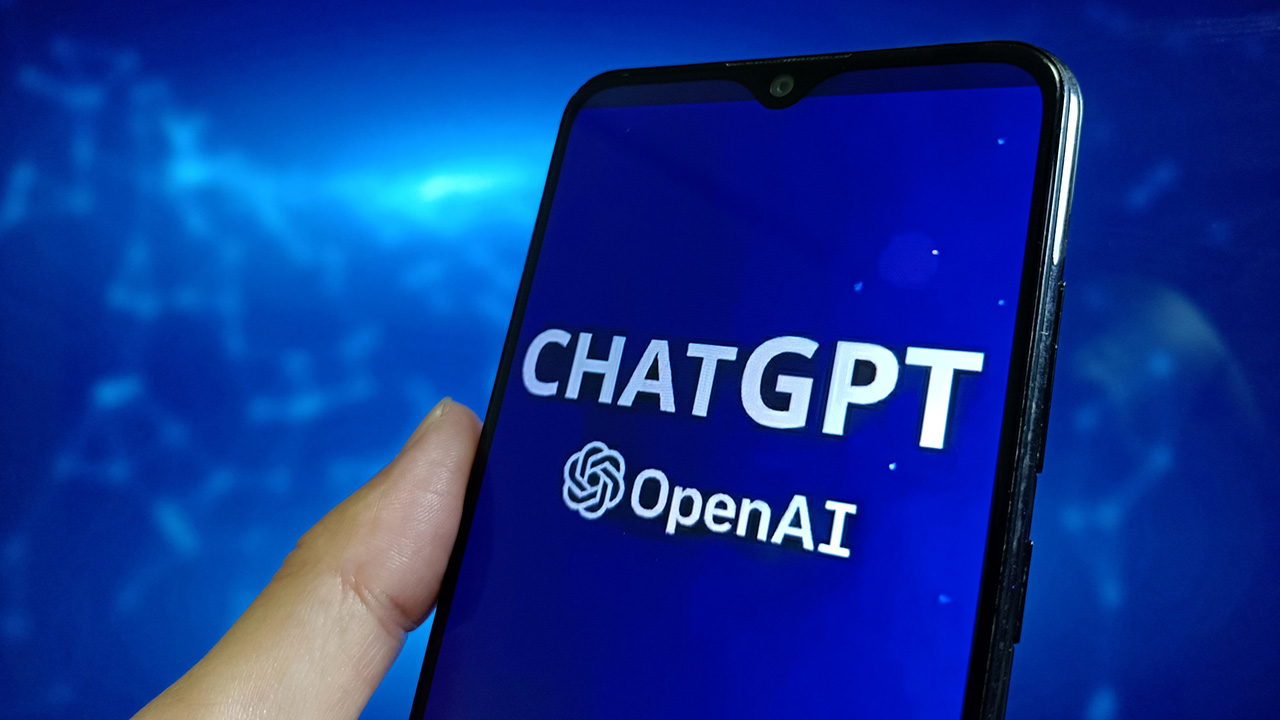OpenAI Under FTC Scrutiny: ChatGPT's Data Practices Examined

Table of Contents
FTC's Focus on ChatGPT's Data Collection Methods
The FTC's investigation into OpenAI centers on the vast amounts of data ChatGPT collects and how it uses that data. Understanding OpenAI's data practices is crucial for assessing the potential risks to user privacy.
The Scope of Data Collection
ChatGPT collects a considerable amount of data from its interactions with users. This includes:
- User inputs: Every prompt, question, and command entered by a user is recorded.
- Conversations: The entire conversation history, including both user inputs and ChatGPT's responses, is potentially logged.
- Usage data: Metadata such as the time of interaction, duration of conversations, and frequency of use are also collected.
This data is ostensibly used for model training and improvement, allowing OpenAI to refine ChatGPT's capabilities and address shortcomings. However, the extent and specifics of data usage remain a subject of the FTC investigation.
Transparency and User Consent
OpenAI's data privacy policy regarding ChatGPT is a key focus of the FTC's investigation. The scrutiny revolves around whether the policy is sufficiently transparent and whether users provide truly informed consent.
- User consent process: The clarity and comprehensiveness of the consent process are being examined. Does the user fully understand what data is collected and how it will be used?
- Informed consent: The FTC will assess whether users are adequately informed about the potential risks associated with providing their data to OpenAI.
- Policy clarity: Ambiguities or insufficient details within the privacy policy could constitute a violation of data privacy regulations.
Data Security Measures Implemented by OpenAI
The security measures employed by OpenAI to protect user data are also under the microscope. OpenAI claims to implement various protocols, but their effectiveness and potential vulnerabilities are being investigated.
- Encryption: The type of encryption used to protect data both in transit and at rest needs to be rigorously examined.
- Access controls: The FTC will examine the measures in place to restrict access to user data to authorized personnel only.
- Data breach prevention: The effectiveness of OpenAI's protocols in preventing data breaches and mitigating the impact of potential breaches will be a key consideration.
Potential Violations of Data Privacy Laws and Regulations
The FTC's investigation will likely explore several potential violations of existing data privacy laws and regulations.
COPPA Compliance and Children's Data
A significant concern revolves around the use of ChatGPT by children and compliance with the Children's Online Privacy Protection Act (COPPA). COPPA requires websites and online services directed to children under 13 to obtain verifiable parental consent before collecting, using, or disclosing their personal information.
- COPPA requirements: OpenAI needs to demonstrate clear compliance with COPPA’s requirements for age verification and parental consent.
- Potential risks of violation: Non-compliance could result in significant penalties, including hefty fines.
- Parental controls: The availability and effectiveness of parental controls to restrict children's access to ChatGPT will be evaluated.
GDPR and International Data Protection Standards
OpenAI's data practices must also adhere to the General Data Protection Regulation (GDPR) and other international data protection standards.
- GDPR compliance: The investigation will examine OpenAI's compliance with GDPR's stringent requirements regarding data processing, user rights, and data security.
- International implications: Non-compliance with GDPR and other international regulations could have serious legal and reputational consequences for OpenAI.
- Data transfer: The lawful transfer of user data across international borders will also be assessed.
FTC's Authority and Potential Penalties
The FTC holds significant authority to investigate and penalize companies for violations of data privacy laws.
- Investigative powers: The FTC can issue subpoenas, conduct audits, and demand access to relevant documents and data.
- Potential penalties: Penalties for violations can include substantial fines, injunctions requiring changes to data practices, and even civil penalties.
- Legal precedent: The FTC will consider existing legal precedents when determining appropriate penalties.
Impact on Users and the Future of AI Development
The FTC's investigation into OpenAI will have far-reaching consequences for users and the future of AI development.
User Trust and Confidence in AI
The investigation's outcome will significantly impact user trust and confidence in OpenAI and other AI technologies.
- Erosion of trust: Negative findings could lead to a decline in user trust, impacting the adoption and usage of AI-powered tools.
- User behavior changes: Users may become more cautious about sharing personal information with AI systems.
- Reputational damage: OpenAI could suffer reputational damage, potentially affecting its future growth and market position.
Implications for Future AI Development and Regulation
This investigation sets a crucial precedent for the development and regulation of AI technologies.
- Stricter data privacy regulations: The outcome could push for stricter regulations and greater transparency around AI data practices.
- Changes in AI development practices: AI developers may be compelled to adopt more responsible and ethical data handling practices.
- Ethical considerations: The investigation underscores the urgent need to prioritize ethical considerations in the design and deployment of AI systems.
OpenAI Under FTC Scrutiny: Key Takeaways and Call to Action
The FTC's investigation into OpenAI's data practices and ChatGPT's data handling is a significant event with substantial implications for data privacy in the age of AI. The investigation highlights the need for transparency, informed consent, and robust data security measures in the development and deployment of AI technologies. Potential violations of COPPA, GDPR, and other data protection laws underscore the seriousness of the issues at stake.
Stay informed about the ongoing FTC investigation into OpenAI and the evolving landscape of AI data privacy. Demand transparency and accountability from AI developers to protect your data. Learn more about OpenAI's data practices and advocate for responsible AI development. The future of AI hinges on prioritizing user privacy and ethical considerations.

Featured Posts
-
 Monaco Gp Fp 1 Results Leclerc Fastest Verstappens Strong Showing
May 26, 2025
Monaco Gp Fp 1 Results Leclerc Fastest Verstappens Strong Showing
May 26, 2025 -
 Pogacars Powerful Performance Secures Tour Of Flanders
May 26, 2025
Pogacars Powerful Performance Secures Tour Of Flanders
May 26, 2025 -
 Shipwreck On Front Lawn Cnn Coverage Of The Grounded Container Vessel
May 26, 2025
Shipwreck On Front Lawn Cnn Coverage Of The Grounded Container Vessel
May 26, 2025 -
 Flash Flood Emergency Preparedness A Practical Guide
May 26, 2025
Flash Flood Emergency Preparedness A Practical Guide
May 26, 2025 -
 Laurence Melys Sur Rtl Son Impact Sur Le Cyclisme Feminin
May 26, 2025
Laurence Melys Sur Rtl Son Impact Sur Le Cyclisme Feminin
May 26, 2025
Latest Posts
-
 French Open Upsets Ruud And Tsitsipas Exit Early Swiatek Dominates
May 30, 2025
French Open Upsets Ruud And Tsitsipas Exit Early Swiatek Dominates
May 30, 2025 -
 French Open Sinner And Djokovic Face Tough Competition
May 30, 2025
French Open Sinner And Djokovic Face Tough Competition
May 30, 2025 -
 French Open 2024 Sinner And Djokovics Path To Victory
May 30, 2025
French Open 2024 Sinner And Djokovics Path To Victory
May 30, 2025 -
 French Open Day 1 Djokovic Leads Winning Charge Alongside Gauff And Andreeva
May 30, 2025
French Open Day 1 Djokovic Leads Winning Charge Alongside Gauff And Andreeva
May 30, 2025 -
 Nuno Borges Upsets Casper Ruud At Roland Garros Due To Knee Injury
May 30, 2025
Nuno Borges Upsets Casper Ruud At Roland Garros Due To Knee Injury
May 30, 2025
